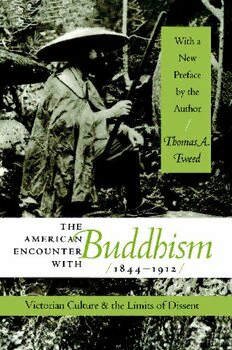
The American Encounter with Buddhism, 1844-1912: Victorian Culture and the Limits of Dissent PDF
281 Pages·2000·4.485 MB·English
Most books are stored in the elastic cloud where traffic is expensive. For this reason, we have a limit on daily download.
Preview The American Encounter with Buddhism, 1844-1912: Victorian Culture and the Limits of Dissent
Description:
In this landmark work, Thomas Tweed examines nineteenth-century America's encounter with one of the world's major religions. Exploring the debates about Buddhism that followed upon its introduction in this country, Tweed shows what happened when the transplanted religious movement came into contact with America's established culture and fundamentally different Protestant tradition. The book, first published in 1992, traces the efforts of various American interpreters to make sense of Buddhism in Western terms. Tweed demonstrates that while many of those interested in Buddhism considered themselves dissenters from American culture, they did not abandon some of the basic values they shared with their fellow Victorians. In the end, the Victorian understanding of Buddhism, even for its most enthusiastic proponents, was significantly shaped by the prevailing culture. Although Buddhism attracted much attention, it ultimately failed to build enduring institutions or gain significant numbers of adherents in the nineteenth century. Not until the following century did a cultural environment more conducive to Buddhism's taking root in America develop. In a new preface, Tweed addresses Buddhism's growing influence in contemporary American culture.
See more
The list of books you might like
Most books are stored in the elastic cloud where traffic is expensive. For this reason, we have a limit on daily download.
